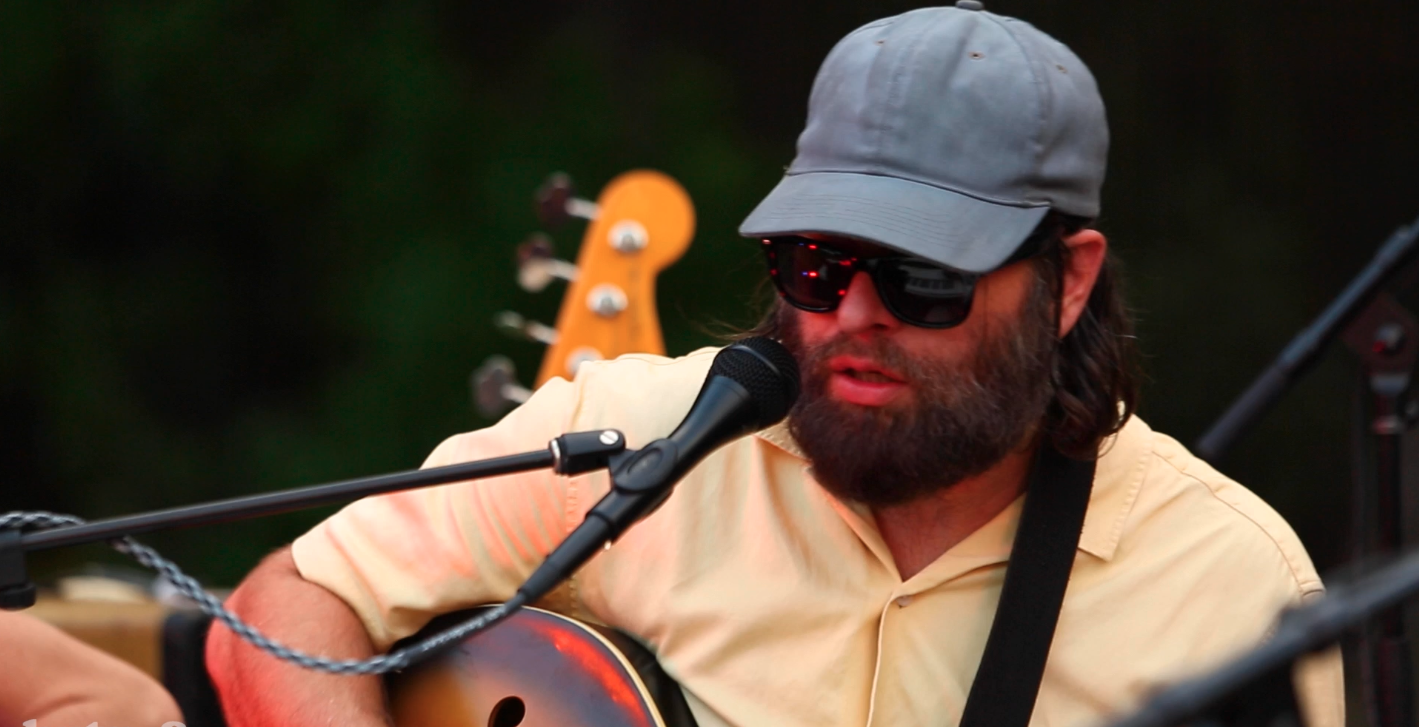photo by Eddie Gaspar for KUT
A Discussion With Producer Bill Bentley and His New Roky Erickson Tribute, “May The Circle Remain Unbroken”
By Jeff McCord
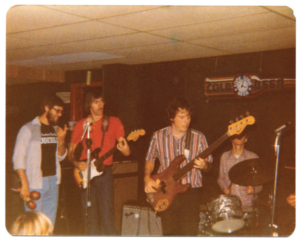
“I’ll never forget my twenty-ninth birthday.” Bill Bentley recalls his time with his band the Bizarros in Austin. “We were playing the second Soap Creek Saloon out on North Lamar. As I looked to my right, there was Doug Sahm and Spencer Perskin from Shivas Headband, and to my right was Roky Erickson, all sitting in with us. I thought like, ‘God, how did I get here? You hit the trifecta, man.’”
Though Bentley only lived in Austin for a decade or so in the 70s, the writer/publicist (and former KUT DJ) has spent a lifetime in devotion to the music created here. And there’s no doubt who set him on that path: Austin’s first true rock star, Roky Erickson.
Others have sold more records (Stevie, Willie) and had statues built for them downtown (Stevie, Willie), but the impossibly charismatic Roky and his acid-drenched band the Thirteenth Floor Elevators galvanized what came to be known as the Austin music scene in the mid-sixties.
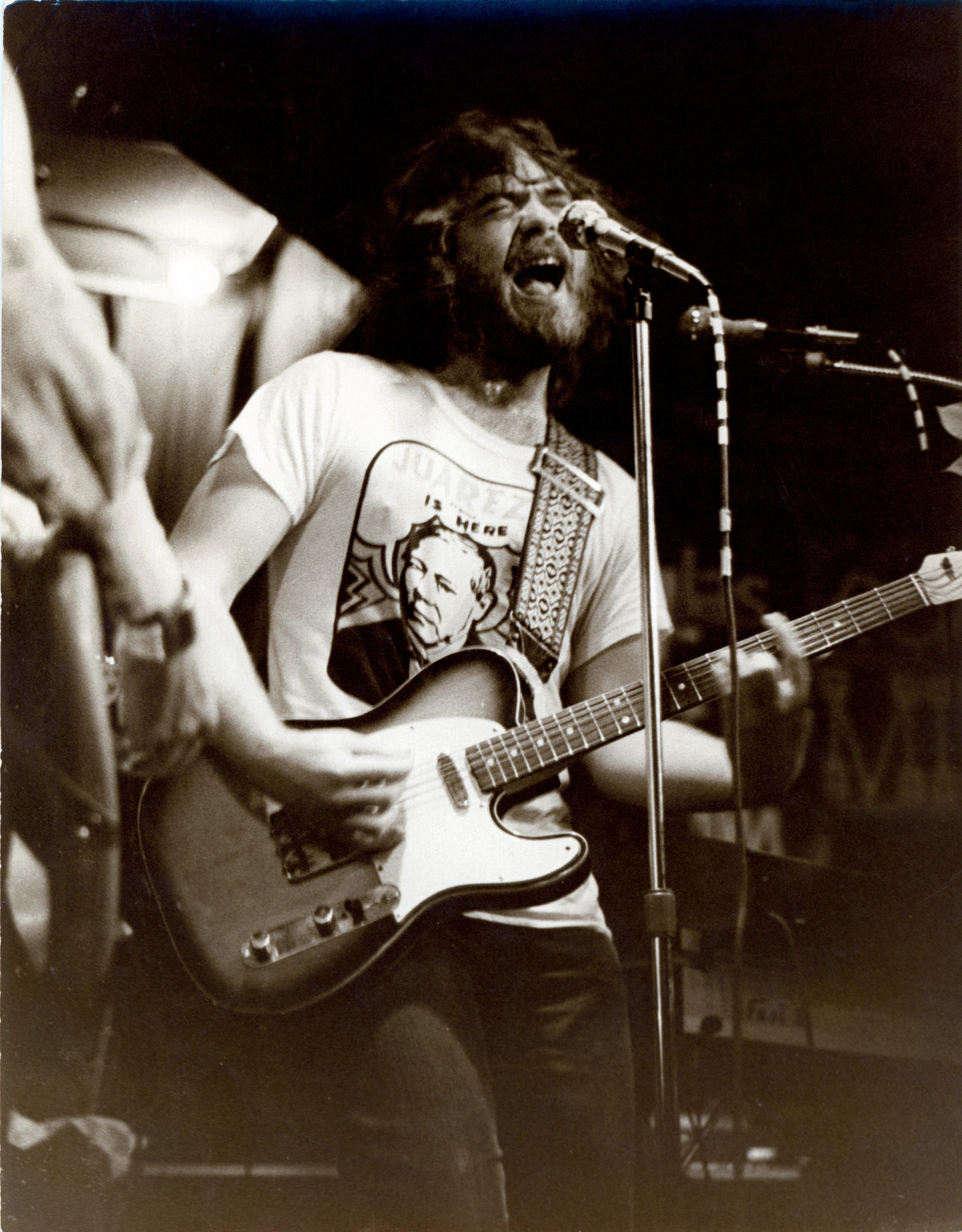
Bentley was only fifteen the first time he experienced the Elevators in his hometown Houston. “That sound of the jug and just the power of Roky screaming and singing and the guitars. Even having heard ‘You’re Going to Miss Me”, we were not even remotely prepared for how incredible the Elevators were that night. The rhythm section was just completely crazy. Stacy Sutherland’s guitar was so beautiful. And the electric jug, what the hell is that? And then Roky singing and screaming, he just had this sort of persona on stage where you really felt that he believed everything he was singing. He seemed possessed. He really did.”
Our conversation naturally turned to Roky in speaking with Bentley about his work producing and compiling May the Circle Remain Unbroken: A Tribute to Roky Erickson, a twelve-track posthumous tribute released on vinyl July 17th on Light in the Attic Records. The lineup is impressive, everyone from Billy Gibbons to Ty Segall, Margo Price to the Black Angels.
It’s not Bentley’s first rodeo, either. In 1990, he produced the Erickson tribute, Where the Pyramid Meets the Eye, a collection jammed with 90s stars like R.E.M. and Primal Scream, all eager to pay homage. Proceeds were dedicated to helping the struggling musician. I asked Bentley what Roky thought of the release. “He liked it! He told me. ‘Oh you liked my title, huh?’” (reportedly Roky’s definition of psychedelic music).
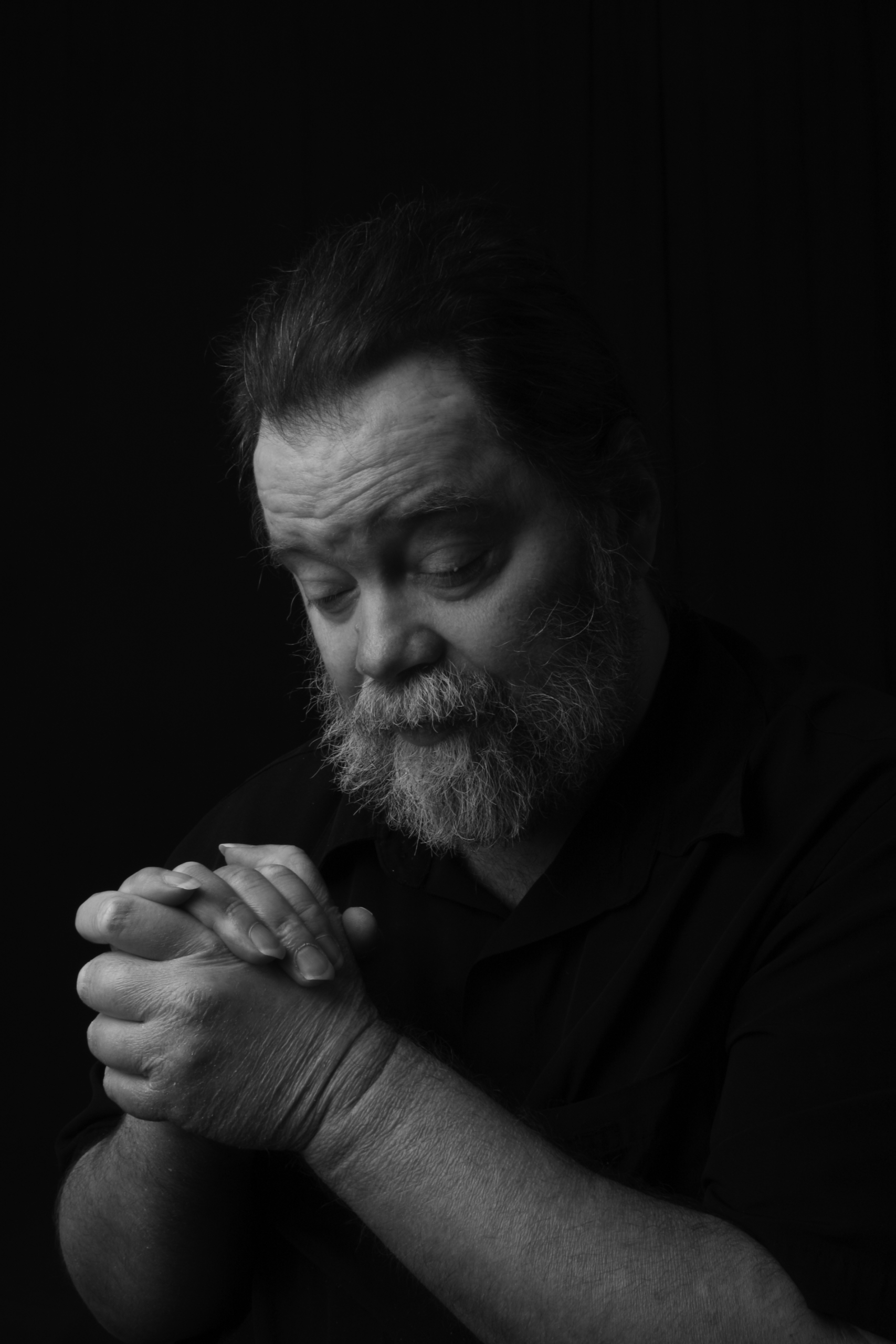
Roky’s struggles began early and lasted throughout his life (he lived to age 71, and died in 2019). Bentley recalls early Elevator shows where Roky would be on stage with his back to the audience, singing a different song than the band was playing.
The Elevators were the brainchild of Tommy Hall, a UT philosophy major and early proponent of the consciousness-altering power of LSD. Hall wrote the Elevators lyrics like a manifesto, and it set them apart from every other band of the psychedelic era. The band took LSD every time they played, which took its toll. And the authorities, particularly in Texas, looked upon them as an existential threat. They focused their ire on the Elevators’ star, Roky.
Bentley recalls, after the busts began, how the Elevators just vanished. “It was just, you know, like 20 songs, 22 songs over the course of, what, two and a half albums that really count. I often say you could have about if they stayed in San Francisco in the fall of sixty-six instead of coming back to Texas at their label’s behest to record an album, I don’t think they would have got busted all that much. And there’s no telling what could have happened. Their producer [Lelan Rogers] told me the most incredible story. He said they had a call once from a man named Mike Jeffries and he said, ‘I’m taking this black guy over to England, to start him over there, I want to take the Elevators, too.’ Of course he was talking about Jimi Hendrix. So Lelan calls up Tommy Hall and says, you know, this guy wants to manage you and take you to England, and Tommy says, ‘We manage ourselves.’ Can you imagine the Elevators in England in the 60s with Hendrix?”
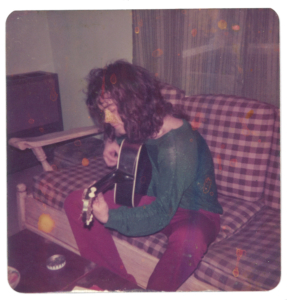
Instead, the persecution began, with Roky being institutionalized. “The authorities had really done a number on Roky. I look at it now and I can’t say it’s criminal, but it was really inhumane.”
Largely because of the Elevators (now absent from the scene), Bentley made his way to Austin. He would encounter Roky by chance walking down Congress Avenue in 1972, and again when interviewing Doug Sahm for the Austin Sun. Sahm, releasing a new single from Roky, brought him over to his house for Bentley to interview. They became friends.
Much of Roky’s post-Elevators music was dark, full of monsters, zombies, two-headed dogs. Other songs, like “Be and Bring Me Home”, written while Roky was institutionalized, are heartbreaking. All came from a person hard to reconcile with his image. In-person, he was kind, sweet. Talking with Roky was undeniably strange, but just when you thought you weren’t communicating, he would make a sly joke or comment to make you realize he was right there with you.
A few years ago, Bentley decided he wanted to honor Roky with another benefit album. But by the time he found the right label partner with Light in the Attic, Roky’s health was failing, and he knew the project would end up as a memorial.

“I started out with like six or seven people, you know, obviously with Billy Gibbons, because we went together back then [in Houston] to see the Elevators when we were young. I knew Jeff Tweedy liked Roky a lot. We had talked about him. My son, Brogan, I raised him on the Elevators. I had tried to get Brian Eno to do ‘May the Circle Remain Unbroken’ on the first tribute record. But he was busy. I thought, like, you know, he can do this. He loved that song. So there’s just some gimmes.”
Other artists proved a bit more challenging. “I read something that Neko Case had written about Roky after he died, I could just tell that emotionally, she was very, very hurt and upset. It’s hard getting to her because she was busy doing all this other stuff. But I think she finally realized you just have to do it if you love Roky.”
“Charlie Sexton knew Roky really well because he kind of stayed at their house in the 70s. I was thinking like, well, I’ll get Charlie and Dylan. Back in the 60s, Dylan said how much he liked ‘Slip Inside This House”. And he used a couple of lines from that song on “The Ballad of Frankie Lee and Judas Priest”, I don’t know if he realized it. So yeah, we’ll get Charlie and Dylan. I got nowhere with that, with Dylan’s management. But Charlie, he was friends with Alison Mosshart [the Kills, the Dead Weather]. They took [Starry Eyes] in an incredible direction.”
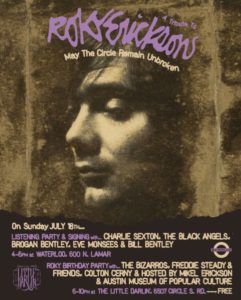
“On a couple of tracks, somebody raised their hand and wanted to do it. Lucinda surprised me. She was around Roky in the 70s. The Black Angels just did an incredible version of ‘Don’t Fall Down’. Beautiful, almost like Nico singing it. I asked Margo Price, I didn’t really see anything in print that she was a big fan. I just knew her wild spirit. She got back to me and said ‘I want to do ‘Two-Headed Dog’. And I’m like, whoa.”
Bentley has assembled another worthy tribute to Roky’s talent, and kept his legacy alive and present for a new generation. “When I talk to younger people, they know some of his music. And they definitely know he was a major figure in rock and roll in the 60s, continuing a very strange pattern of life. If you think of some of the other mentally challenged people, like Syd Barrett and Skip Spence and a few others, they didn’t last as long, you know, Roky really stayed at it. Because if he had quit, he wouldn’t have lasted anywhere near as long as he did. Music was his life.”
It’s been Bentley’s as well. “I have to pay honor and tribute to Roky because I really don’t know if I’d gotten into music like I would have if it hadn’t been for the Elevators. Rock and roll – I was just set up for it by the Elevators. I never got over it. I’m still completely mesmerized.”


